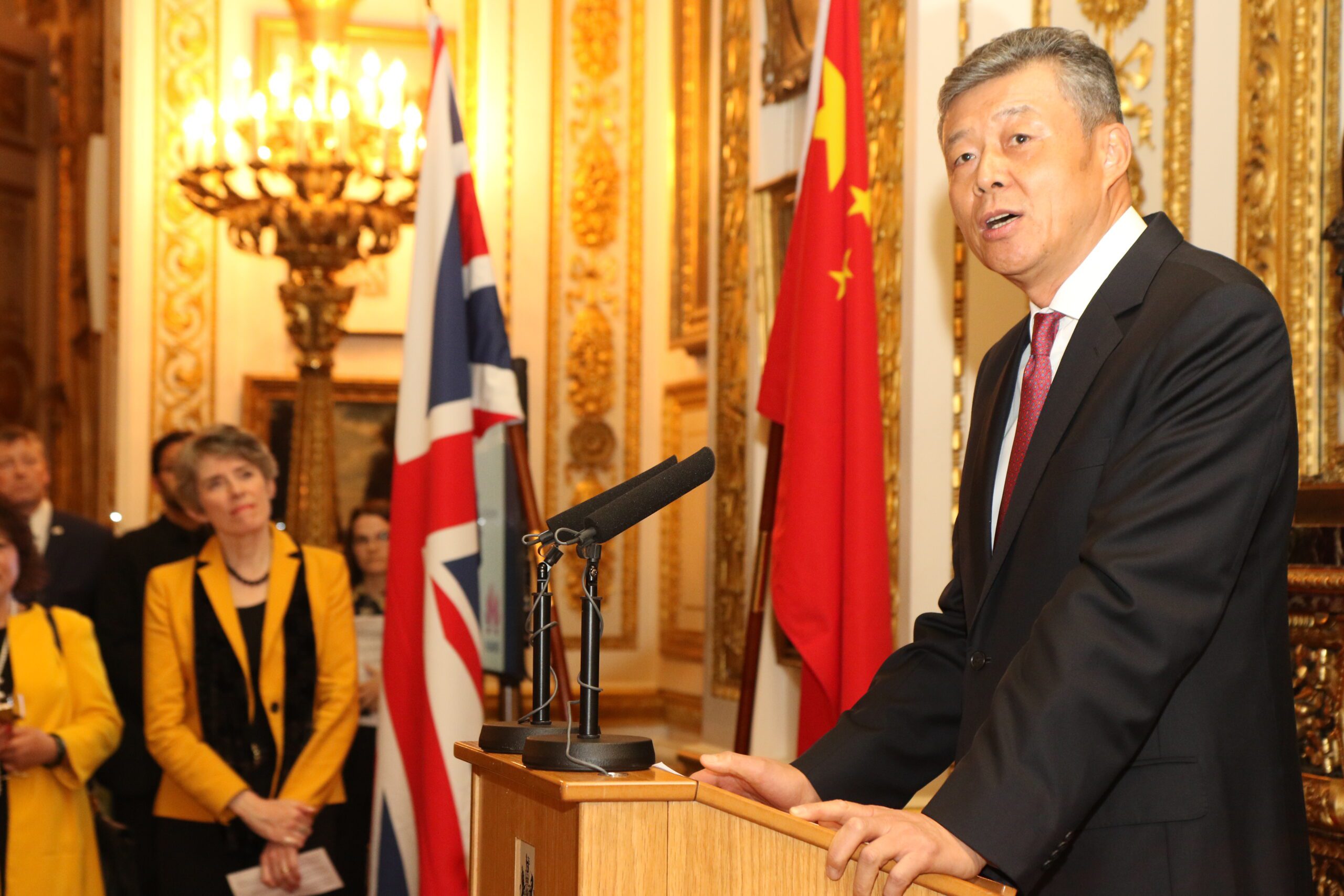China’s Investments are Unignorable for the UK Economy – And So Are the Risks

Shortly after his appointment, Britain’s new Business Secretary, Peter Kyle, visited China. This marked the first trade talks between London and Beijing in years. Kyle described China’s status as “unignorable,” with the Labour government now seeking opportunities to revive the sluggish UK economy with the help of Chinese investment. Yet, challenges loom on the horizon.
The United Kingdom is attempting to begin a new chapter in its relations with China. Two weeks ago, Kyle attended the UK-China Joint Economic and Trade Commission (JETCO) talks in Beijing – the first such meeting since 2018. In line with this, Keir Starmer’s Labour government takes a different position from that of the previous Conservative governments. David Cameron’s premiership was once labeled a “golden era” in British-Chinese relations, symbolized by his much-publicized sharing of a plate of fish and chips with Xi Jinping. However, during the rest of the Conservatives’ 14-year rule, UK-China relations deteriorated.
The Labour Party hinted at a new direction in its election manifesto, acknowledging that China’s influence will likely expand in the coming years. Indeed, as noted by William Matthews, a senior research fellow at the British Chatham House think tank, in an interview with the BBC: “the world will become more Chinese, and whilst that is difficult for any Western government, there needs to be sensible engagement from the get-go.” Consequently, at last year’s G20 summit, Keir Starmer offered Beijing “consistent, durable, respectful” relations in the first high-level meeting between the two sides in six years. There are even rumors that the UK’s Prime Minister is planning a trip to China as early as next year.
Possible Relaxation of UK-China Trade
The results of the latest negotiations suggest that trade barriers worth billion pounds over five years could be relaxed. This could affect sectors such as agriculture and the automotive industry. “China, because of its emerging economic status, isn’t just unignorable, it is also desirable to engage with,” Kyle told reporters, according to Reuters. And when asked whether Britain should follow the European Union’s example and protect its economy from a rather non-transparent trading partner, Kyle argued: “the fact that China poses so many opportunities, but also so many uncertainties, should not deter us. […] It should actually engage us and motivate us.”
The talks in Beijing reflect Labour’s broader strategy of seeking stronger ties with non-EU economies, which is particularly important for technology and manufacturing industry or real estate, especially in struggling regions such as northern England. These developments seem to suggest that UK-China relations are slowly improving, though uncertainty remains.
Ruthless Partners
One pressing question concerns the nature (and reliability) of Chinese business operations in the UK. This is not just a fresh memory for politicians, who recall the April Scunthorpe steelworks crisis. The plant’s Chinese owner, Jingye Group, had planned to abruptly shut down furnaces, which would have permanently ended production at the UK’s last facility producing virgin steel, which is essential for many industries, not just railways.
The British government had to intervene, even recalling MPs from their holidays to address the crisis by taking control of the steelworks. Some public figures and politicians, including Kyle’s predecessor Jonathan Reynolds, suggested that it could have been sabotage by the Chinese. While Jingye is nominally a private company, it is closely linked to the Chinese party-state apparatus.
Setting aside the question of whether this was deliberate sabotage or not, the episode illustrates that Chinese investors may not always be reliable partners – at least not according to Western standards. Their decisions tend to be rather reckless, and the country’s strategic interests cannot be expected to be taken into account. The question is whether this price for allowing China into key industries and particularly critical infrastructure is acceptable.
Chinese investments in the British economy are not particularly extensive. Quite the contrary. According to official statistics from 2023, it accounted for just over £3.7 billion or 0.2 percent of overall foreign direct investment (FDI). Stock of FDI from Britain in China was £8.9 billion or 0.5 percent of the total UK outward investments respectively. Both numbers have decreased compared to 2022.
On the other hand, Britain is the biggest recipient of Chinese money after the US and Australia. Investors have stakes in various sectors, including Heathrow Airport, electricity distribution and a nuclear power plant in Somerset, as well as some of the major banks. A Chinese investor Cheung Chung-Kiu, for instance, owns one of the defining buildings of the London skyline: the ‘Cheesegrater’ (Leadenhall Building). The Chinese company Geely even runs the manufacturer of the famous black cabs, which are now electric.
Everything is Connected
There is another issue that shows that everything is connected when it comes to relations with China: the planned Chinese “mega-embassy” in London. Although planning permission was meant to be independent of the government, the issue has quickly become politicized, with both the US and the Netherlands cautioning against hasty approval.
This is because the proposed site, near the Tower of London, sits within easy reach of many key institutions, including the Bank of England, the London Stock Exchange, and several leading global banks. Critics warn that the location could facilitate espionage activities. Concerns have also been raised over China’s construction blueprints, which included blacked-out sections. “In these circumstances, we consider it is neither necessary nor appropriate to provide additional more detailed internal layout plans or details,” DP9, the planning consultancy representing Beijing, told CNN.
Ireland provides a cautionary tale. Plans for a Russian “mega-embassy” reportedly included a secret underground site, possibly intended for espionage. The Irish government had to step in, causing diplomatic embarrassment. Meanwhile, Britain is seeking to upgrade its own embassy in Beijing. However, the timetable for this may now hinge on whether China’s London compound receives approval. More details about the approval process are expected after several delays in October. The matter is currently being managed by the Secretary of State for Housing, Steve Reed.
Despite attempts to improve relations between Britain and China, there are a number of opportunities for downturn. Given the unpredictable nature of Chinese business on British soil and the financial scale of investments, Starmer’s cabinet should perhaps not rely too much on cooperation.
Written by
Karel Pučelík
KPucelikKarel Pučelík is AMO Research Fellow with focus on the modern history and current affairs of Great Britain and Ireland. He studied economic policy and economic history at the University of Economics in Prague and contemporary history at the Faculty of Social Sciences of Charles University. He completed his doctoral studies in modern history at the Faculty of Arts of the University of West Bohemia in Pilsen. He has conducted research at various institutions, including the National Archives and the Parliamentary Archives in London, as well as the Bodleian Library at Oxford University. He is a postgraduate member of the Royal Historical Society. Additionally, he is a journalist and columnist. He regularly contributes articles and analysis to the media on foreign affairs, particularly in the UK, Ireland, Spain, and the USA, as well as European politics.


